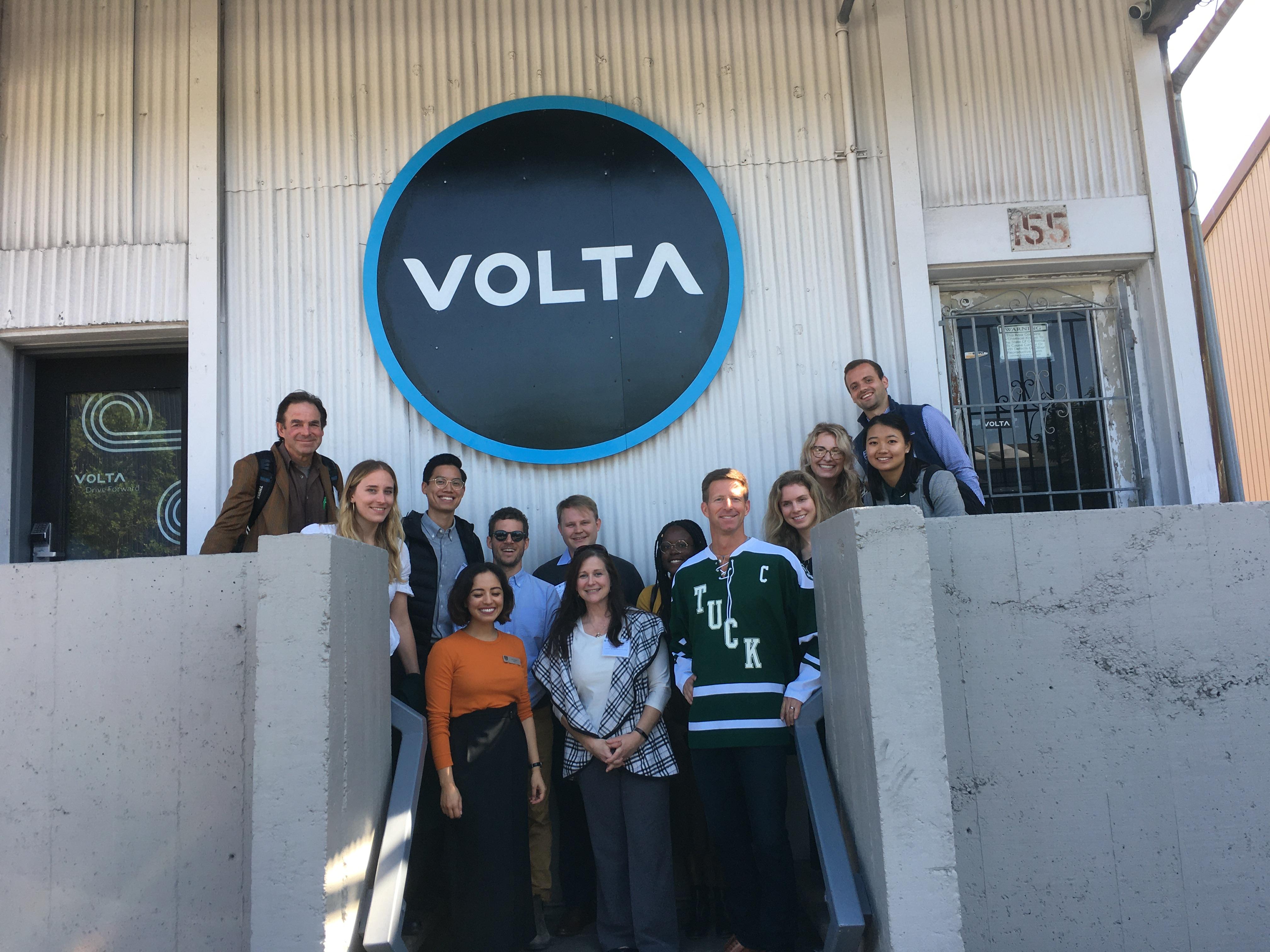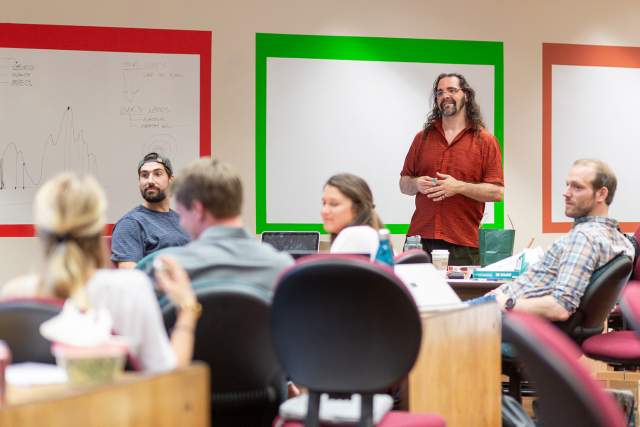For Will Maness T’21, the experience opened his eyes to an industry and location he wasn’t very familiar with before coming to Tuck—one where headquarters combine work and play and emphasize work-life balance. “I don’t know if it has to do with the weather, but the people do seem happier,” he says. “It definitely made me think harder about tech as a potential career path.”
Students were surprised to learn about the range of positions available beyond product development and coding—including business operations and sales. “They really explicitly say they value people who have selling skills and want employees who know how to talk to clients—skills we’re currently honing at Tuck,” says Ben Simon T’21. “I don’t think I would have gotten that ‘aha’ moment had I not gone on the trek.”
The Ecosystem Deep Dive
During the same week, a smaller group of nine first-year students ventured to the Bay Area. Led by the Center for Private Equity and Venture Capital and the Center for Entrepreneurship, the Ecosystem Deep Dive (EDD) was a two- to three-day immersion aimed at giving students an in-depth view into early-stage companies, investment in early-stage companies, and the startup ecosystem in the Bay Area. “Silicon Valley is the hotbed of entrepreneurship,” says Jim Feuille D’79, executive director of the Center for Private Equity and Venture Capital. “In terms of dollars, it overwhelms all other cities.”

During the EDD, students each took turns researching and preparing briefings for their classmates on companies as diverse as biotech fund Third Rock Ventures, electric vehicle startup Volta, and venture networking club Alpha Club. A highlight for students was a visit to fintech startup Chime (tagline: “Banking made awesome”) where its two founders met with students to describe the ups and downs of starting a company.
“They were both extremely transparent about their individual career journeys and Chime’s early struggles finding product-market fit,” says Binh Doan T‘21. The conversation underscored other advice from VC firms about the potential in high-growth companies that had found the right fit between product and market. “This perspective was encouraging and helped shape the direction of my job search.”
Tuck’s renowned general management curriculum and its focus on interdisciplinary thinking builds leaders who can work cross-functionally and excel at building trust and empathy. Those skills are essential at technology companies for promoting creativity, innovation, and speed.
In addition to informing student’s job hunts, the experience also helped students considering entrepreneurship, by giving them an intensive look at early-stage financing. “The ecosystem deep dive was the most impactful experience I have had at Tuck,” says Robert Sewell T‘21, who is running his own startup while in business school. “This learning is impacting how I am structuring my company for funding going forward.”
Of course, beyond the specific information conveyed by the company visits, the tours were also a chance for students to informally network with company executives as well as fellow students interested in tech. Through her new position, Mogilner hopes to build on those networks and create more awareness on the West Coast of the unique skills Tuck has to offer. “Tuck’s renowned general management curriculum and its focus on interdisciplinary thinking builds leaders who can work cross-functionally and excel at building trust and empathy,” Mogilner says. “Those skills are essential at technology companies for promoting creativity, innovation, and speed.”

